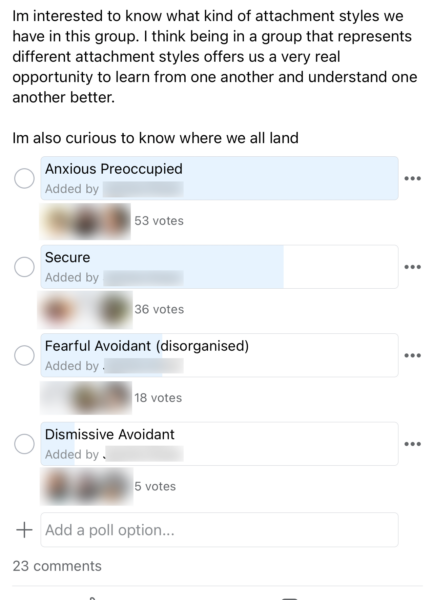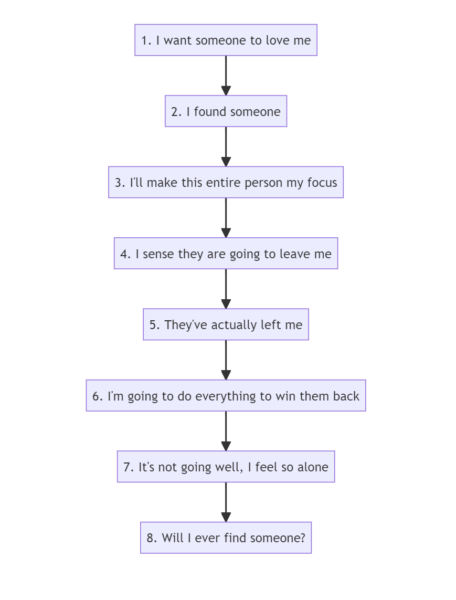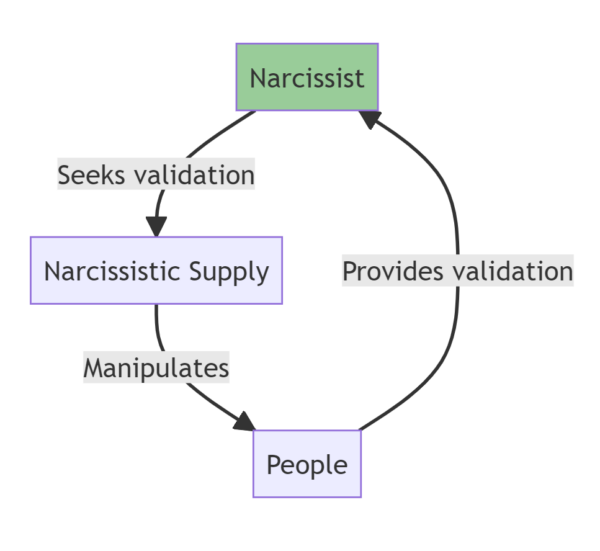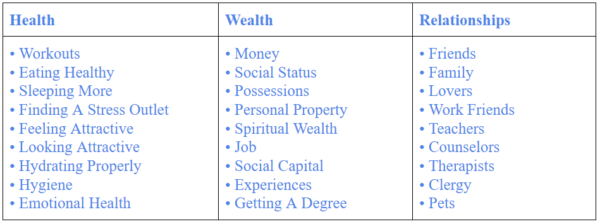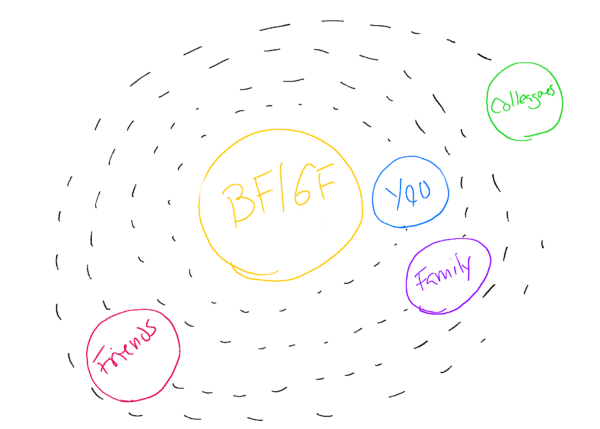There’s a lot of information out there on how to fix codependency after a breakup.
Some of it is good, sure.
But most of it is pretty generic.
It stops just short of adding actual depth and I guess that’s what my wife and I are going to be attempting to do today. We’re writing this article to not only show you the most effective strategies to employ to recover from codependency.
But we aim to go deeper.
To show you the science and statistics backing up our arguments.
In all, we believe there are six major tips that, once employed, can help fix your codependency after a breakup:
- Gain A Fuller Understanding Of What It Is And How You Acquired It
- Identify If You Are Exhibiting The Major Symptoms Of Codependency
- Learn From CoDA
- Find Something You Care About As Much As Your Ex
- Group Therapy (Or Community)
- Practice Saying No
Let’s get started!

What Are Your Chances of Getting Your Ex Boyfriend Back?
Take the quizTip #1: Gain A Fuller Understanding Of What Codependency Is And How You Acquired It
I’ve made no secret that I believe the anxious attachment style and codependency are linked.
(And I’m not the only one to make this connection)
Seeing as how most of our clients have an anxious attachment style,
And how many are caught in this cycle,
It’s vitally important that we understand everything about how codependency forms.
So, what the heck is it?
Well, codependency is often rooted in the thought that “I am not enough.” As a result, you will do everything you can to “earn” the love and attention from others, which includes abandoning yourself to take care of others needs before your own. This could be with your partner, friends, children or even strangers!
That’s codependency in a nutshell.
But the real wild part begins when you start peeling back the layers to understand where it comes from.
Sticking with our theme of attachment styles. There’s a really strong case to be made that your codependent tendencies were formed in childhood.
Specifically an instance where the child plays the role of the parent (which basically teaches the child that the parents needs come first.)
Looking At Dr. Murray Bowens Research
In the 60’s Dr. Murray Bowen studied family dynamics and came up with the family systems theory.
In simple terms, family systems theory suggests that families are made up of interconnected individuals who depend on each other. Each family member has a specific role and is expected to interact with others based on their role and relationship. When certain behaviors persist within the family system, it can either create balance or result in dysfunction.
There are a lot of examples of this playing out.

What Are Your Chances of Getting Your Ex Boyfriend Back?
Take the quizFather Death Example
So, let’s use an unfortunate example. Let’s say that your father suddenly passes away.
In the case of the death of their partner, your mother sobs to you nonstop, asks YOU to make them feel better.
Never mind the fact that she doesn’t ask you about your feelings. Instead, she just talks to you about the death and depression constantly placing you in a role where you have to make her feel better.
This can pave the way for codependency to rise.
Another common example we see is one in which we see a lot of is parents who fix everything.
Parents Fixing Everything Example
Here we come to the opposite end of the spectrum.
In the first example it was the parent that wouldn’t fix anything. In this example the parent is the opposite.
They fix all of your problems for you or didn’t let you do things you were capable of. Instead of listening and asking what you’d like to happen, your parent intervened and took action.
For example, you were upset that you worked hard on a research paper and your teacher gave you a C but it was subjective. When you told your mom about tit she decided to go to the principal about it instead of asking how you’d like to handle it. With enough of this intervening you will start to become dependent on your mom and not be able to make decisions without her and in the future you will either become like her (intervening) or you will need others to make decisions for you.
The Parent Is Codependent Example
When a codependent’s needs aren’t met by one partner alone, they tend to seek fulfillment from other individuals, often leading to their children becoming involved in meeting those needs.
Let’s imagine that your father was constantly away on business trips, or worked all the time, or was in the military. Meanwhile, your mother relied on you to fulfill her emotional needs. She might also have expected you to do work around the house, tasks she would typically have expected your father to handle.
Essentially, this put you in the role of your father.
The Parent Divorce Example
Suppose one of your parents spoiled you with gifts and criticized the other parent to win your favor. This behavior could lead to enmeshment, a strategy to isolate you from the other parent. Over time, this might make you see yourself as an extension of them rather than an individual, causing you to put everyone else’s needs before your own.
The No Boundary Parent Example
Imagine a parent who reads your diary or enters your room without asking. They make no distinction between what’s theirs and what’s yours. You may have heard comments like, “This is not your room because I paid for this house,” which can make you feel unwelcome in your own home. In extreme cases, they might even remove your bedroom door. This parent might also use your belongings, like your clothes or jewelry, without your permission.
The Take My Side Parent Example
A parent may expect you to side with them during an argument with their partner. This scenario could occur either during or after a relationship, similar to the divorce example above. In a narcissistic dynamic, the parent might attempt to manipulate the other parent by using the children.
The Jealous Parent Example

What Are Your Chances of Getting Your Ex Boyfriend Back?
Take the quizA parent might exhibit jealousy over the child’s relationships. They could sabotage your friendships or romantic relationships in an attempt to keep you close, reflecting a fear of abandonment.
Tip #2: Identify If You Are Exhibiting The Major Symptoms Of Codependency
So, identifying the symptoms of codependency is probably going to be the easiest tip on this list.
That’s because codependents, at their core, often don’t really know who they are or sometimes even what they like. They’re perfectionists by nature, and their basic operating modus operandi is essentially, “I need to improve so that I get the approval of others.”
This results in a plethora of different symptoms.
- You’ll see codependents really struggle with is setting boundaries.
- You’ll also notice their relationships are completely one-sided.
- They’re always the ones putting in most of the effort to maintain relationships, like making plans.
- Codependency will also manifest differently between men and women. Men might show aggression because they’re suppressed.
- And one unfortunate trend we’ve seen is that they tend to attract narcissists.
It’s really that last symptom I want you to pay special attention to.
If you know anything about narcissistic behavior, you’ll have come across this concept of narcissistic supply.
A narcissist requires other people to seek validation and often uses them to create almost a supply of validation.
So, as you can see, a codependent, who wants to put energy into other people and seeks their own approval in that way, and a narcissist, who is actively seeking out individuals who do this, often pair up. This creates an endless cycle of one person taking and the other giving.
So, if you’re examining your past relationships and considering whether your ex was potentially a narcissist, especially if you are codependent, we’ve found that there is definitely an uptick in these types of relationships.
Another significant point about the symptoms of codependency is that a lot of the most popular romantic comedies in Hollywood revolve around it.
One of my favorite movies is “500 Days of Summer.”
But it’s clear that the main character, Tom, is completely obsessed and codependent with Summer, the girl. The entire movie is basically a journey through 500 days of their relationship, the breakup, and the aftermath.
The movie ends brilliantly from a narrative perspective, but it’s also kind of dark if you think about it.
(Spoiler alert!)
The protagonist spends the entire movie trying to get back with Summer, and we’re supposed to feel good because he’s finally moving on. However, in the very last scene (which I’ll attach below), Tom meets a new girl named Autumn.
The movie seems to suggest that the main character didn’t overcome his codependency at all; instead, he’s excited because he’s found a new girl to be codependent with.
So, I want you to look at Tom in “500 Days of Summer” as an example of a typical codependent person.
Tip #3: Cherry Pick From CoDa
Now, this is not to be confused with the movie CODA, an acronym for Child of a Deaf Adult.
(We were talking a lot about movies above)
This CODA refers to Codependents Anonymous.

What Are Your Chances of Getting Your Ex Boyfriend Back?
Take the quizI’m going to attach a picture of the 12 steps that Codependents Anonymous encourages you to take when you enter into their program.
Interestingly, I find myself disagreeing with a lot of things on this list.
Like Alcoholics Anonymous, Codependents Anonymous have their own 12-step program.
I’m going to cherry pick a bit here, pointing out what I like and calling out what I don’t.
Here’s what I appreciate about Codependents Anonymous: the admission that you’re powerless over others and that your life has become unmanageable.
I believe this recognition is crucial.
It draws the line between taking care of your partner and controlling them. When we talk about the dark side of codependency, we’re really referring to this manipulative control and poor boundary setting disguised as help.
You might find yourself overextending to please your partner, and then feeling resentful when they don’t reciprocate.
Interestingly, that might be the only aspect of Codependents Anonymous that I truly align with. A significant portion of Codependents Anonymous is tied to faith, and while I’m not saying that a relationship with God isn’t important, I do find it potentially ironic that so much of these 12 steps involve God. It seems like you might become codependent with this unknowable entity.
So, when you look at the 12 steps of Codependents Anonymous, I recommend cherry picking what will be helpful for you. I don’t believe that becoming entirely codependent on God—or anyone else—is the answer, particularly when considering the goal is to overcome codependency.
Tip #4: Find Something You Care About As Much As Your Ex
I often discuss a concept called the Holy Trinity during the post-breakup period.
The Holy Trinity involves dividing your life into three primary categories:
- Health
- Wealth
- Relationships
Essentially, every activity in your life can fit into one of these categories.
And yes, I mean EVERY ONE.
For example, taking out the trash – a seemingly mundane task – falls under health.
Bear with me here but if you don’t take out the trash, it can pile up, potentially leading to illness or mental distress due to the unsightly mess. Therefore, every single element of your life can be categorized under this Trinity, helping you recognize how health, wealth, and relationships intersect and influence each other.
Experiencing a devastating breakup can negatively impact both your wealth and health.
Conversely, positive improvements in your wealth or health can boost your relationships.
However, I’ve noticed that codependent individuals often revolve their entire lives around their ex, struggling to function without them.
Telling a codependent person to focus on health, wealth, and relationships is usually not enough.
As Codependents Anonymous suggests, you need to redirect your codependent energy towards something positive. While I believe becoming codependent on God is not the complete answer, shifting your energy towards something as meaningful to you as your ex can enhance your life and open new opportunities.
That’s where the magnum opus comes into play.
This approach is what sets my advice apart from other peers’ counsel.
The question is, what is your magnum opus?
How do you want to be remembered?
What positive impact do you want to make on the world?
Codependents excel at caring for one person; why not redirect that energy towards helping many deserving people?
Finding your magnum opus involves identifying a significant, global goal that intersects with health, wealth, and relationships.
For example, if your magnum opus is getting a promotion at work, that’s a wealth-related goal, not a magnum opus.
Your magnum opus should positively impact health, wealth, and relationships.
Tip #5: Group Therapy (Or Community)
I was scrolling through Reddit the other day, actually looking for top recommendations that have helped people overcome their codependency.
One of the most popular answers was participating in group therapy.
This idea resonates with my wife and me, as we already intuitively understand its value.
Even though we offer coaching, courses, and other services, our community is consistently praised as the most valuable aspect of what we provide.
This is likely because of the three layers of accountability present within our community.
- Peer to Peer
- Veteran Members
- Expert Coaches
It can be challenging to address your problems alone, especially when you’re prone to falling back into codependent behaviors without someone there to offer a reality check.
- The three layers of accountability in our community include peer-to-peer accountability, where you are surrounded by others also dealing with breakups or potential codependency, and who understand your struggles.
- There’s also veteran member accountability, offered by those who have succeeded through the program and can guide you.
- Finally, we have expert accountability, provided by coaches who specialize in addressing and overcoming codependency and advising people on managing breakups.
Tip #6: Become The “No” Man/Woman
This essentially refers to learning to set boundaries, but it goes a bit deeper than that.
It’s about learning to make your own decisions.
When you’re codependent in a relationship, you aren’t often making your own choices. You are entirely reliant on another person. They make all the decisions, and you need to start learning to make your own.
Sometimes, the best way to achieve this is to practice saying ‘no.’
Consider the movie ‘Yes Man,’ where Jim Carrey’s character decides to say ‘yes’ to everything.
Initially, this leads to positive outcomes, but eventually, we learn that it’s not advisable to say ‘yes’ to everything – there needs to be a balance. The same principle applies to codependents. You need to learn to say ‘no’ and set boundaries.
When doing this, you don’t have to be rude.
For example, if someone you’re interested in is discussing their problems with you, instead of offering solutions, ask them questions like, ‘What would you like to happen?’ or ‘How do you plan on resolving that?’
This approach implies that while you acknowledge their problem, you are not rushing in to solve it.
This concept is particularly crucial for individuals in our program who desperately want their exes back. They’re often eager to fix their exes’ problems. We often advise our clients to ‘acknowledge, but don’t fix.’ This involves acknowledging the problem (‘What would you like to happen?’) but refraining from offering a solution (‘How do you plan on resolving that?’).
These are all instances of saying ‘no,’ setting clear boundaries, and it’s one of the most effective ways to overcome codependency after a breakup.
